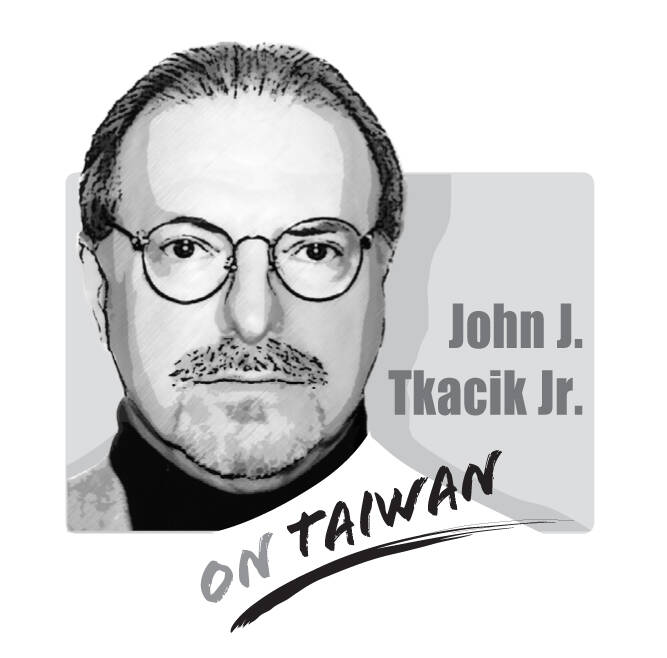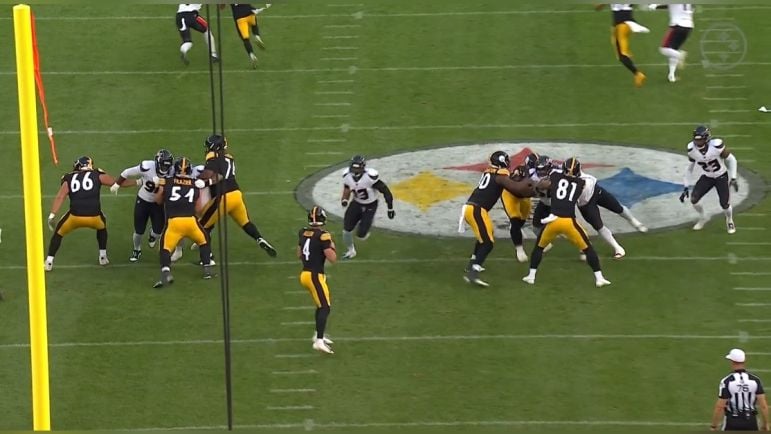The Paris Olympics are over and the five rings around the Louvre, the Invalides, the Eiffel Tower and Versailles are now just memories. As a historian of diplomacy, I naturally think of France! The Olympian of world politics, the creators of “diplomacy”, Cardinal Richelieu and Prince Talleyrand. But sixty years ago, at the 1964 Diplomatic Games, Team China defeated Team France in a battle of intelligence in “free negotiations” over Taiwan. Paris has never recovered from that.
To be fair, in the Europe of 1963 and 1964, France was under siege. It had been driven out of its Asian dominions. It had just begun its first nuclear weapons tests when the US and the Soviet Union signed treaties banning them. France, like communist China, refused to join the treaties and sought comfort in Beijing’s embrace. It felt marginalized by the US. France (and even its president, General Charles de Gaulle) saw rapprochement with China as a lever to increase its global influence. The fact that the US was still fighting China a decade after the Korean War made Beijing even more attractive to it.
In October 1963, de Gaulle sent his personal envoy, Edgar Faure, to question China’s Premier Zhou Enlai (周恩來) on the question of normalizing Sino-French relations. Faure explained to Zhou, “For France, breaking off all relations with Taiwan is difficult because there is a de facto government on the island.” Faure added, “General de Gaulle cannot forget that he and Chiang Kai-shek (蔣介石) were on the same side during the war, and so he does not want to break off relations abruptly.” Given de Gaulle’s obvious hesitation, Faure suggested that a first step toward diplomatic relations might be official trade offices. “If such a step were made tomorrow, Taiwan could take the initiative and break off relations with France. That would be the simplest way to solve the problem.” But, Faure asked, perhaps France could “keep just one person in Taiwan” to “dilute its status”?

Premier Zhou, a far more able diplomat than Faure, countered the French with his favorite tactic: “Let the foreigner believe what he wants to believe.” He explained Beijing’s objections. Before the Korean War, Zhou recalled, London had recognized Beijing as the only legal government of China and “had not allowed a representative of Chiang Kai-shek in Britain.” Yet “Britain continued to support Chiang Kai-shek in the United Nations and even maintained a consulate in Tamsui.” This, Zhou said, “created a situation of ‘half-establishment of relations’ (半建交狀況).” Zhou prophetically warned: “If France adopts this approach, it will be unfortunate for both sides.”
Faure did not listen. He thought that Peking would have “no objection to the presence of a French consul in Taiwan”. But later, when he looked through his notes, he realised that if France “let the Chinese government – which is Peking – free in the island territory of Formose (Taiwan) a gradation of consular management which is its responsibility”: Zhou would only accept a French consul in Taiwan who would be “subordinate” to a French ambassador in Peking. Embarrassing!
Nevertheless, on December 16, 1963, de Gaulle personally assured American Secretary of State Dean Rusk: “France has no intention of recognizing communist China in the near future.” (“Near future” is apparently the French word for “one month”).
According to US archives, between January 15 and 17, 1964, the French ambassador in Washington informed several senior State Department officials, including Secretary Rusk himself, that while France “would recognize Communist China, it would not accept any terms from Peking.” On January 15, the ambassador informed Rusk’s deputy, Averell Harriman, that “France will not break off relations with Taiwan” and that “unless Taiwan decides to break off relations, France’s relations with Taiwan will remain unchanged.” The ambassador “stressed that Paris had ‘not given in to any demand from Peking.'” Harriman warned the ambassador of the consequences. America was still bitter over the three-year bloodbath Communist China had inflicted in Korea a decade earlier.
In secret, the Americans planned their own counter diplomacy. On January 15, White House security advisor McGeorge Bundy spoke with US President Lyndon B. Johnson. The transcript states:
“The only way to frustrate de Gaulle is to get Chiang to hold back for a week or so. If he did not break off relations with the French, … Peking would be in trouble because (China) still takes the position that it cannot recognise anyone who recognises Formosa. The French hope that Chiang will break off relations immediately, and he probably will. We would advise him to hold back for a week.”
President Johnson no doubt approved with a hearty laugh. The next day, Johnson signed a personal message to President Chiang, who recognized the irony of his “seemingly accepting a ‘two-China’ situation for a few days” only to teach de Gaulle a lesson. As President Johnson put it, Chiang’s “patience will embarrass Mao Tse-tung as much as possible.” And if de Gaulle himself was embarrassed, LBJ judged, so much the better.
In fact, French recognition of Communist China came on January 27. The world’s newspapers could not believe it. Really? Beijing “has not demanded that de Gaulle’s government break off relations with the Nationalist government in Taiwan”? The New York Times reported on January 20: “US urges Taipei to maintain contact with Paris in dispute with Peking.” On January 23, the Times wrote in an editorial: “If Peking is finally ready to give up its claim to rule over Taiwan and recognize the island as an independent republic,” then peace is near, but “we cannot betray our friends in Taiwan by agreeing to leave them at Peking’s mercy.” Ten days later, the newspapers were still reporting: “Taipei protests, does not break off contact.”
In a panic, “an official French spokesman … denied that France was ending diplomatic relations with nationalist China.” On February 2, France informed the West German government that recognizing Beijing did not mean that France was taking any position on the “problem of the two Chinas,” “which is neither politically nor legally real.”
Taipei’s embassy in Paris was barely holding on. On February 5, the embassy denied that it had transferred ownership of Taipei’s diplomatic properties in Paris to its UN delegation. By the twelfth day, France was beginning to cave. In a panic, the Quai d’Orsay stressed that “the position of its government is that there is only one China,” but refused to speculate on whether that position meant that France accepted China’s sovereignty claims over Taiwan.” Days passed, but Taipei’s embassy was still in Paris. “Stand By Taipei Worries France,” ran the New York Times headline. On February 9, the Times commented on de Gaulle’s perfidy: “It is hard to imagine anything more unpleasant than his decision – a choice between failure and the open admission of fraud.”
That day, the French chargé d’affaires in Taipei brusquely informed Taipei’s foreign minister, Shen Ch’ang-huan (沈昌煥), that “as soon as the Peking protégé arrives in Paris, France will consider him as a representative of China and the (Taipei) diplomatic mission will therefore no longer exist.” The chargé d’affaires confirmed that this was a formal non-recognition. De Gaulle’s policy was unfortunately both a “failure” and an “admission of deception.” The Taipei embassy in Paris was closed and its staff withdrawn from French soil in March.
There was a glimmer of hope, however. On April 23, French Prime Minister (later President) Georges Pompidou spoke about Taiwan’s future at a luncheon hosted for him by the Franco-Japanese Press Association in Paris. Taiwan’s long-term status was unclear, he said, and “this is a question that will have to be decided one day, taking into account the wishes of the people of Formosa.” France continued to oppose Beijing’s claims of sovereignty over Taiwan for thirty years… until 1994.
Here we have to jump three decades into the future. In the early 1990s, France approved the sale of frigates and fighter-bombers to Taiwan worth several billion dollars. In retaliation, China canceled several French billion-dollar projects – a subway system and a nuclear power plant – and closed a French consulate.
China then asked France for formal confirmation that Taiwan belonged to China.
This is what a secret French envoy did in a January 1994 communiqué: “France recognizes the government of the People’s Republic of China as the sole legal government of China and Taiwan as an integral part of Chinese territory.” Funnily enough, French President Francois Mitterrand did not learn of this for several weeks. The leading investigative Paris newspaper reported that the president had “a rather tense conversation” with Foreign Minister Edouard Balladur on January 14. Monsieur le President was upset because the communiqué “contained an admission by Paris that Taiwan belongs to communist China.” Furious, Mitterrand fumed, “Paris has literally kowtowed to the Chinese and accepted all the demands that the Americans have rejected. This does not prevent them (the Americans) from trading with Peking while maintaining economic relations with Taiwan.” So true. But France was not America.
Versailles and the Louvre still shine. Richelieu and Talleyrand are still honored by historians as diplomatic Olympians. But in the 1964 Taiwan competition, China won gold, the scheming USA silver, and Taiwan (always a good sportsman) bronze. At the end, France was in a worse position than it had been at the start.
John J. Tkacik, Jr. is a retired U.S. diplomat who served in Taipei and Beijing and is now director of the Future Asia Project at the International Assessment and Strategy Center.
Comments are moderated. Comments must be relevant to the article. Comments containing offensive or obscene language, personal attacks of any kind, or advertising will be removed and the user banned. The final decision is at the discretion of the Taipei Times.



